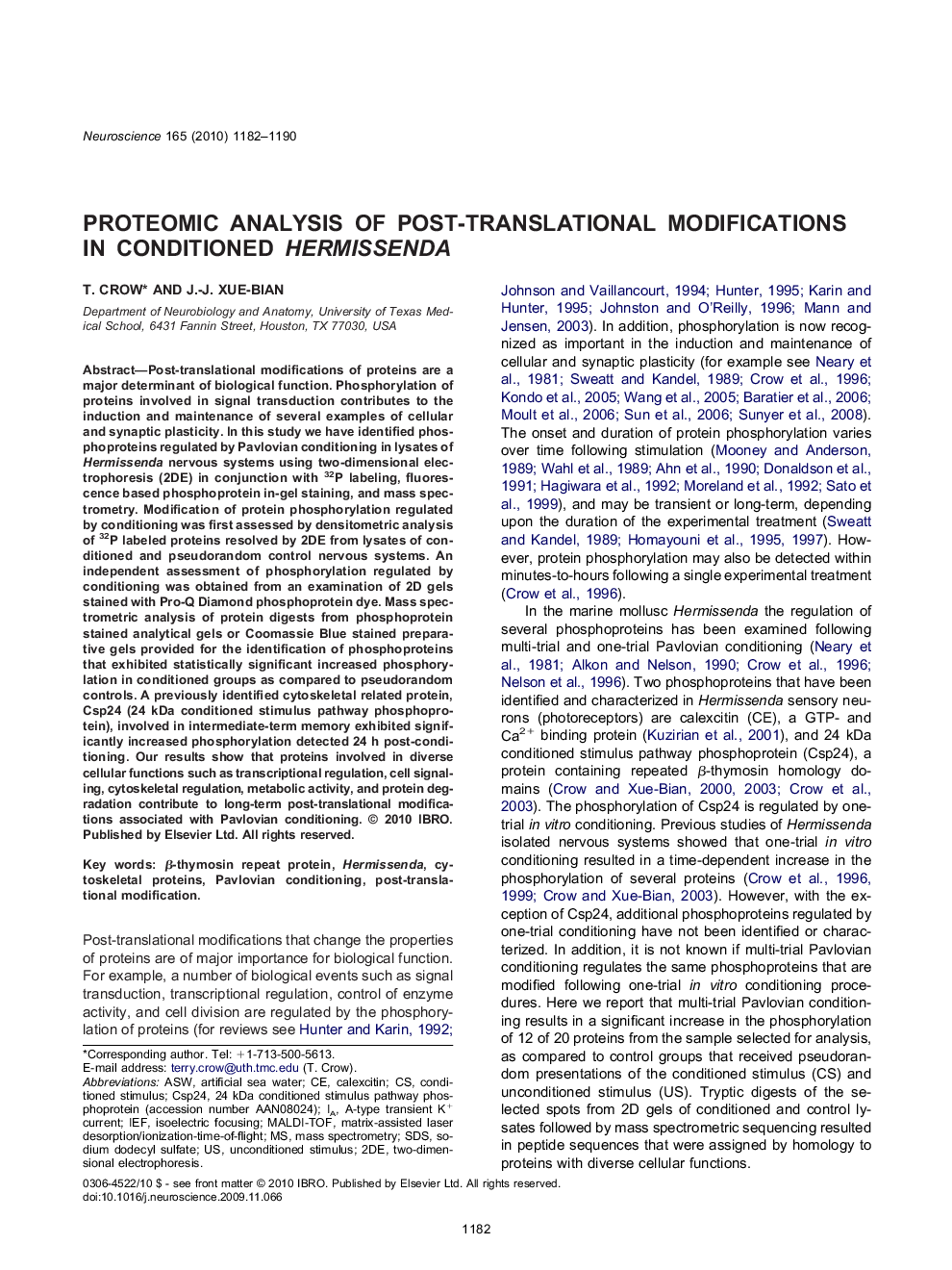| Article ID | Journal | Published Year | Pages | File Type |
|---|---|---|---|---|
| 6277296 | Neuroscience | 2010 | 9 Pages |
Post-translational modifications of proteins are a major determinant of biological function. Phosphorylation of proteins involved in signal transduction contributes to the induction and maintenance of several examples of cellular and synaptic plasticity. In this study we have identified phosphoproteins regulated by Pavlovian conditioning in lysates of Hermissenda nervous systems using two-dimensional electrophoresis (2DE) in conjunction with 32P labeling, fluorescence based phosphoprotein in-gel staining, and mass spectrometry. Modification of protein phosphorylation regulated by conditioning was first assessed by densitometric analysis of 32P labeled proteins resolved by 2DE from lysates of conditioned and pseudorandom control nervous systems. An independent assessment of phosphorylation regulated by conditioning was obtained from an examination of 2D gels stained with Pro-Q Diamond phosphoprotein dye. Mass spectrometric analysis of protein digests from phosphoprotein stained analytical gels or Coomassie Blue stained preparative gels provided for the identification of phosphoproteins that exhibited statistically significant increased phosphorylation in conditioned groups as compared to pseudorandom controls. A previously identified cytoskeletal related protein, Csp24 (24 kDa conditioned stimulus pathway phosphoprotein), involved in intermediate-term memory exhibited significantly increased phosphorylation detected 24 h post-conditioning. Our results show that proteins involved in diverse cellular functions such as transcriptional regulation, cell signaling, cytoskeletal regulation, metabolic activity, and protein degradation contribute to long-term post-translational modifications associated with Pavlovian conditioning.
